 |
How can practitioners engage in meaningful research in order to explore and advance our
practices?
Increasingly the research methodologies used in art and design are "practice-based". By
that I mean firstly, research which is initiated in practice, where questions, problems,
challenges are identified and formed by the needs of practice and practitioners; and,
secondly, that the research strategy is carried out through practice, using predominantly
methodologies and specific methods familiar to us as practitioners in the visual arts.
Our contemporary cultural context poses many complex challenges. I suggest that the
best way to approach these is through practice-based 'real world' research, whose
outcomes can be applied directly in the professional context. For instance:
 | the printmaker Jon Pengelly's completed Ph.D research into environmentally
sustainable printmaking practices resulted in a suggested framework for safer workshop
and studio practice, and a risk assessment database, which is being developed into an
accessible interactive web site; |
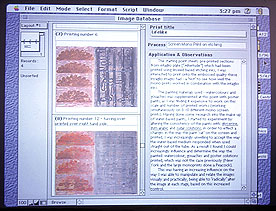
Jon Pengelly, Ph.D 1996
risk assessment database
(photos: Jon Pengelly)
|
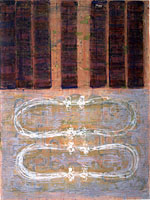
Jon Pengelly, Ph.D 1996
environmentally sensitive print
'Obediance to Universal Reason 1#'
water-based screen monoprint
76 X 108cm
© J. Pengelly 1996
|
 | the ceramic designer Katie Bunnell's Ph.D on the integration of computer aided design
and manufacture (CAD/CAM) technology into designer-maker practice. This is the first
Ph.D in our university to be submitted in electronic format, and paves the way for Ph.D
research submissions from other disciplines |
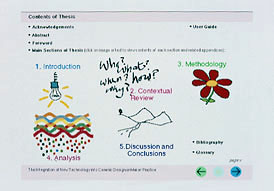
Katie Bunnell, Ph.D 1998
main interface to Ph.D thesis in digital format
(photos: Katie Bunnell)
|
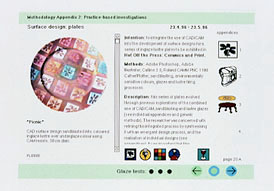
Katie Bunnell, Ph.D 1998
typical screen in digital thesis
|
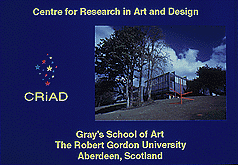
Photo: Stuart Johnstone
|
I also suggest that research progress is accelerated by a collaborative working environment. The Centre for Research in Art & Design provides such a resource for staff, students and researchers at the Art School. By working together and sharing expertise we are able to attempt complex challenges, because the sum is greater than the parts. |
|

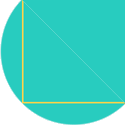


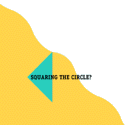 previous page
previous page next page
next page